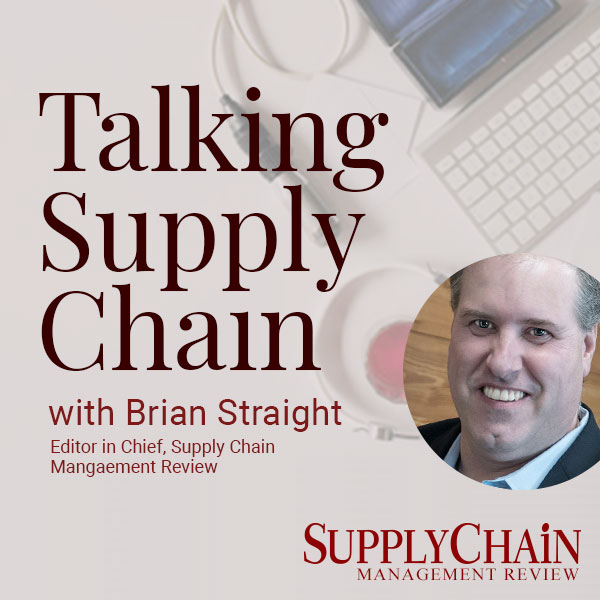Sorry, but your login has failed. Please recheck your login information and resubmit. If your subscription has expired, renew here.
January-February 2018
If you frequent supply chain conferences, as I do, you’ve probably noticed that some of the best-attended sessions are the ones that focus on emerging technologies—or what we’re calling the NextGen Supply Chain. You may have noticed something else: While topics like Big Data, artificial intelligence, augmented reality, blockchain and robotics play to standing room audiences, there’s a lot of confusion about what to do with the information. At the 2016 APICS conference, one member of the audience asked a direct question at the end of an excellent session on Big Data by Hannah Kain, the CEO of Alom: “This sounds great. But there’s not a… Browse this issue archive.Need Help? Contact customer service 847-559-7581 More options
Just as electricity transformed every industry 100 years ago, Artificial Intelligence (A.I.) is poised to transform every industry in the coming decade. A.I. is already changing the ways that consumers and companies interact. Consumers rely on Siri, Alexa or Google Now for intelligent personal assistance. Companies employ predictive analytics to deliver coupons based on shopper preferences. Driverless smart trucks and cars are on the horizon. The consumer’s heightened expectations of personalization, localization and speed are increasing the complexity of the supply chain.
This complexity is resulting in growing cost inefficiencies in the supply chain as companies respond with increased numbers of functional planners, custom applications, and micro-segmentation of processes, metrics and a flurry of Excel spreadsheets straining a companies’ ability to plan. Input signals such as POS data, CRM data and localized social media data are exploding, making supply chains data rich but insight poor. Organizations are realizing that traditional process improvement and optimization is not sufficient to solve these structural S&OP problems. Instead, companies need to pivot and leverage A.I. and related technologies to drive innovation in supply chain planning while making humans more agile and efficient.
A.I. and Robotic Process Automation (RPA) represent two emerging areas that can significantly alter the supply chain planning ecosystem. (See figure 1) A.I. is the discipline of making analytical machines intelligent; enabling an entity to function appropriately and with foresight in its environment.

This complete article is available to subscribers only.
Log in now for full access or start your PLUS+ subscription for instant access.
SC
MR
Sorry, but your login has failed. Please recheck your login information and resubmit. If your subscription has expired, renew here.
January-February 2018
If you frequent supply chain conferences, as I do, you’ve probably noticed that some of the best-attended sessions are the ones that focus on emerging technologies—or what we’re calling the NextGen Supply Chain.… Browse this issue archive. Access your online digital edition. Download a PDF file of the January-February 2018 issue.Just as electricity transformed every industry 100 years ago, Artificial Intelligence (A.I.) is poised to transform every industry in the coming decade. A.I. is already changing the ways that consumers and companies interact. Consumers rely on Siri, Alexa or Google Now for intelligent personal assistance. Companies employ predictive analytics to deliver coupons based on shopper preferences. Driverless smart trucks and cars are on the horizon. The consumer's heightened expectations of personalization, localization and speed are increasing the complexity of the supply chain.
This complexity is resulting in growing cost inefficiencies in the supply chain as companies respond with increased numbers of functional planners, custom applications, and micro-segmentation of processes, metrics and a flurry of Excel spreadsheets straining a companies' ability to plan. Input signals such as POS data, CRM data and localized social media data are exploding, making supply chains data rich but insight poor. Organizations are realizing that traditional process improvement and optimization is not sufficient to solve these structural S&OP problems. Instead, companies need to pivot and leverage A.I. and related technologies to drive innovation in supply chain planning while making humans more agile and efficient.
A.I. and Robotic Process Automation (RPA) represent two emerging areas that can significantly alter the supply chain planning ecosystem. (See figure 1) A.I. is the discipline of making analytical machines intelligent; enabling an entity to function appropriately and with foresight in its environment.
SC
MR


Latest Supply Chain News
- April manufacturing output slides after growing in March
- Q1 sees a solid finish with positive U.S.-bound import growth, notes S&P Global Market Intelligence
- World Trade Centers offers a helping hand to create resilient, interconnected supply chains
- 6 Questions With … Sandeep Bhide
- MIT CTL offering humanitarian logistics course
- More News
Latest Podcast

 Explore
Explore
Software & Technology News
- Technology’s role in mending supply chain fragility after recent disruptions
- Tech investments bring revenue increases, survey finds
- Survey reveals strategies for addressing supply chain, logistics labor shortages
- AI, virtual reality is bringing experiential learning into the modern age
- Humanoid robots’ place in an intralogistics smart robot strategy
- Tips for CIOs to overcome technology talent acquisition troubles
- More Software & Technology
Latest Software & Technology Resources

Subscribe

Supply Chain Management Review delivers the best industry content.

Editors’ Picks






